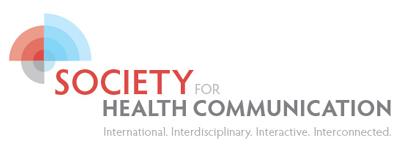Partnership with Journal of Health CommunicationThe Society’s mission is to foster trust in science, advocate for the field, and advance health equity by exchanging ideas and best practices, fostering learning and development, and building meaningful connections across academia, government, nonprofit, and the private sector. The Journal of Health Communication serves as an official publication of the Society for Health Communication. The goal of our partnership is to increase the field’s access to critical health communication research, science and practice learnings; create new publication opportunities for Society members; and advance public health. This partnership includes a special online Journal subscription rate of $10 annually, available only to active Society members, and an annual Special Issue of the Journal. To activate your discounted subscription, contact +44 (0)20 7017 5543 or [email protected]. If you’re not already an individual member, join for free. Special Issue Two Call for PapersThe inaugural Special Issue, Successes and Failures: Everything We Learned from Health Communication Campaigns and Programs, was published in April and is available HERE. The theme of the second annual Special Issue is “Getting Creative: Engaging Communities through Innovative Communication Approaches.” Health communication can make a significant impact on public health at the community level, although creativity and resourcefulness are often required. This Special Issue will highlight innovative, locally driven health communication initiatives that have navigated and overcome challenges—includingbudget constraints, tight timelines, and complex or nuanced needs and environments. We are seeking work that showcases the power of partnerships, from non-profits and foundations to grassroots organizations, demonstrating how tailored, community-centered strategies can lead to meaningful change. We welcome research articles, case studies, and practice-based insights that explore:
Please note that, although not required, we welcome manuscript authorship or co-authorship by locally based practitioners and researchers who have not previously published in the Journal. By bringing together a range of experiences, this Special Issue will identify common themes while celebrating the distinct nuances of health communication across different communities. Join us in spotlighting the strategies that make a difference—one community at a time. Deadline for submissions is Friday, August 1, 2025. You can learn more and submit your papers for review here. Inaugural Special Issue PublishedThe Society and Journal published its inaugural Special Issue: Successes and Failures: Everything We Learned from Health Communication Campaigns and Programs, which includes nine peer-reviewed research papers from health communication programs in the US and around the world. It features insights from the consequences of campaigns, studies with innovative and/or robust evaluations that yielded less than desirable results, and lessons learned from crisis communication efforts. The Special Issue spotlights the scientific process and how scientists rigorously documented health communication failures, mistakes, and lessons learned to affect people’s health knowledge, beliefs and behaviors. The Issue offers evidence across three broad themes including making sense of scientific failures to find communication effects; existing evidence on how emotion and other factors can condition effects; and lessons learned about how campaign development and evaluation shapes our understanding of what constitutes useful health communication activities. By focusing on the mistakes, unintended consequences and lessons learned from health communication efforts, the Special Issue seeks to generate thoughtful consideration of theory and evidence building as complex, messy, and yet still able to generate improvements in health communication practice. |
